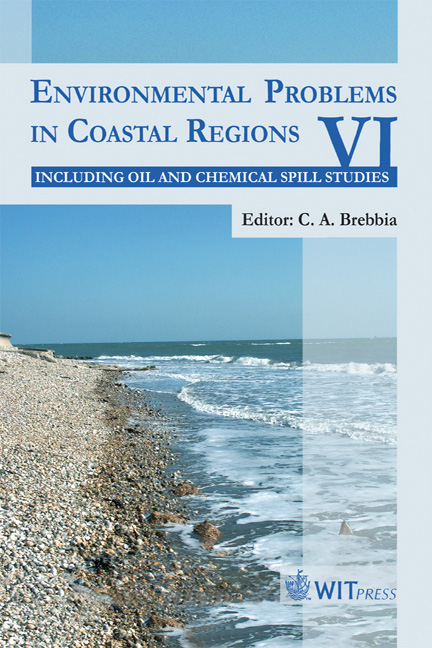Tires: Unstable Materials For Artificial Reef Construction
Price
Free (open access)
Transaction
Volume
88
Pages
9
Published
2006
Size
2,274 kb
Paper DOI
10.2495/CENV060211
Copyright
WIT Press
Author(s)
R. L. Sherman & R. E. Spieler
Abstract
Artificial reefs of varied materials have been deployed worldwide to acquire large and diverse fish assemblages for both commercial and sport fishers, and SCUBA divers. Beginning in 1967, environmental resource managers and local fishers initiated a project to build an artificial reef using banded, but unballasted, waste automobile and truck tires offshore Broward County, Florida, USA. Estimates of the number of tires placed offshore range between 1,000,000– 2,000,000. Since deployment, storm events and ocean currents have caused the bands to give way and the break-up of the reef. Over the years, many tires have washed ashore onto recreational beach areas. Tires that remain in the water continue to move with wave action and currents. Many of these remaining tires have already been forced up against the offshore edge of natural reef with numbers at individual sites estimated in the 100,000's. The objectives of this project were to examine the feasibility of removing the tires as well as gain subjective insight into the impact of the tires on natural habitat. Sixteen hundred tires were removed from the reef edge and recycled. The potential problems arising from the use of tires in artificial reef construction were apparent. Natural reef fauna was broken and buried providing a seascape resembling a junkyard. The shortsighted use of unstable material to construct artificial reefs is an issue facing many coastal areas. Disturbance of this unstable material has futher added to other natural and anthropogenic stresses suffered by the coral reef systems and the wildlife they support. Clearly, unstable materials, such as tires, are not suitable for artificial reef construction. If already deployed, tires should be removed to prevent physical damage to the natural habitat and reduce the related negative biological impacts, in turn, limiting economic loss to local communities benefiting from use of the natural reef. Keywords: southeast Florida, recycling, habitat restoration.
Keywords
southeast Florida, recycling, habitat restoration.





